Nothing adds zest to life like an ongoing quest. For readers, nothing lends itself to questing more than the knowledge that most books remain in print for a limited time. Not only that, but specific editions may be available only in a limited region. Add those together and one can assemble an impressive list of out-of-print or otherwise unavailable books for which one can search in bookstore after bookstore.
Here are (guess the number!) five possibilities for North Americans whose quest lists are too short.
Amazons! edited by Jessica Amanda Salmonson (1979)
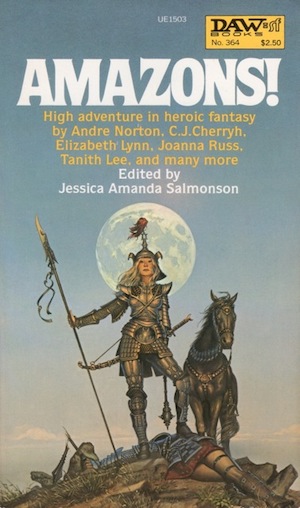
Amazons! demonstrates a point now so commonplace that it beggars belief to think it ever controversial: that it is possible to write a story in which women are not relegated to arm candy, support staff, or rewards for male protagonists. Younger readers astonished to discover that this was debatable are advised to seek out venerable source material like Poul Anderson 1974’s “Reply to a Lady”, which offers such interesting passages as:
Certain writers, Isaac Asimov and Arthur Clarke doubtless the most distinguished, seldom pick themes which inherently call for women to take a lead role. This merely shows they prefer cerebral plots, not that they are antifeminist.
Of course, we are ever so much more evolved now (obligatory pause for bitter laughter).
Recruiting a legion of authors, most but not all of whom were women, Salmonson delivers a diverting array of short pieces featuring women protagonists, most notably “Agbewe’s Sword,” “The Sorrows of Witches,” and Cherryh’s “The Dreamstone.” Even better from the perspective of a modern book hunter, Salmonson does this in a mass market paperback from an era when print runs were enormous: the odds of finding a copy are very good.
The Beehive by Margaret O’Donnell (1980)
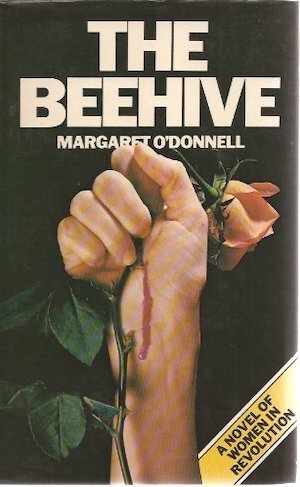
Modern readers stumbling across O’Donnell’s dystopic novel could be forgiven for believing that it was inspired by Margaret Atwood’s The Handmaid’s Tale. The two narratives share many details: a nation abandoning democracy for authoritarianism and a society committed to subjugating women being two very prominent examples. However, a quick glance at the publication dates proves this cannot be the case: The Beehive predates The Handmaid’s Tale by five years.
Set in an unnamed nation (quite possibly Ireland), the novel details a game of cat and mouse between Steiner, head of the secret police, and Sarah Hillard, whose dream of overthrowing the dictatorship and restoring the rights of women are nearing fruition. It’s an engaging tale and I don’t understand why the novel fell out of print almost as soon as it was published.
Gifts of Blood by Susan C. Petrey (1990)
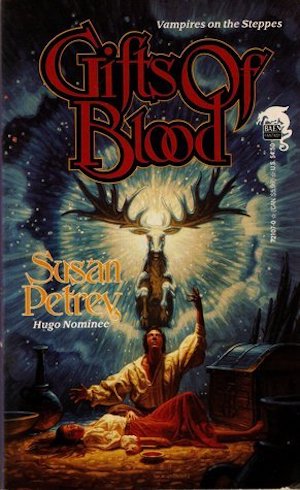
There are any number of science fiction and fantasy authors who exited the field far too soon, leaving behind a small but memorable body of work. As previously discussed,, Petrey died in 1980, so close on the heels of her debut that six of her nine published works were published posthumously.
Such a career arc is usually a recipe for instant obscurity. Petrey was spared this. A decade after her death, all nine of her stories were collected into a slender hardcover volume, accompanied by essays by Ursula K. Le Guin, Vonda N. McIntyre, and Kate Wilhelm. A later mass market edition omitted the essays but is otherwise complete. The majority of the tales focus on a clan of mostly benevolent Central Asian vampires. An exception is also the best story in the volume: “Spidersong,” which features a musically inclined spider concealed within a musical instrument.
The Fortunate Fall by Cameron Reed (1996)
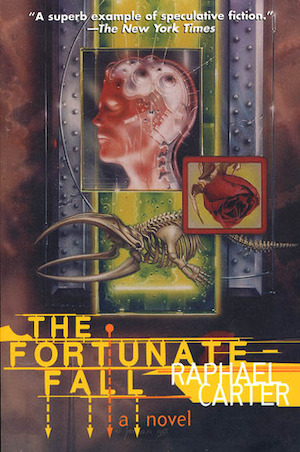
Originally published under a now disused byline, The Fortunate Fall combines critical acclaim with a bewilderingly brief lifespan on bookstore shelves. If ISFDB can be believed, The Fortunate Fall had a single hardcover edition in 1996, and a single trade paperback in 1997. Since then, nothing. The mismatch between the novel’s reputation and its actual publishing history is mindboggling.
Maya Andreyeva is a roving Eye in a world scarred by genocide and transient singularity. A carefully curated version of what she witnesses is made publicly available on the net for the edification and education of bored masses. The crimes that shaped her world are history to Maya, but history and its victims are not entirely dead, a fact that becomes alarmingly relevant to Maya. Elements of this noteworthy work resonate with our current affairs; a reprint under an updated byline would be timely. Until then, have fun searching!
Fire Heart by Joyce Ch’ng (2022)
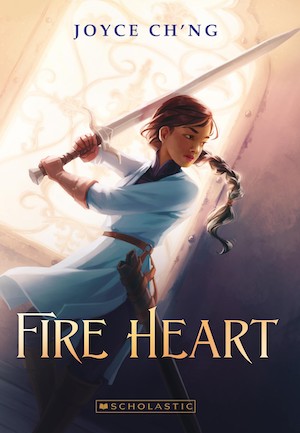
The good news where Fire Heart is concerned is that it is a recent release and very much in print. Even better, it is in print in the region where the majority of humans beings live. Less conveniently for North Americans, that region would be Asia. Fire Heart has no North American edition. Copies on North American bookshelves will therefore be rare. Of course, one could order it from overseas but where is the fun in that?
Fire Heart focuses on Wehia t’Doniyat, who dreams of becoming a respected swordsmith. Family connections win her the opportunity to prove herself worthy of an apprenticeship. As Wehia discovers, that is only the first step on a very long road, one on which apparent shortcuts are potentially career-ending traps. The narrative is enthralling (and an astonishing quick read). Too bad the odds of finding it in North America are so poor.
***
Tracking down these five books should keep book hunters busy for a while. No doubt there are equally worthy works that are even harder to find. Feel free to brag about hard-to-find works you nevertheless found in comments, which are, as ever, below.
In the words of fanfiction author Musty181, four-time Hugo finalist, prolific book reviewer, and perennial Darwin Award nominee James Davis Nicoll “looks like a default mii with glasses.” His work has appeared in Interzone, Publishers Weekly and Romantic Times as well as on his own websites, James Nicoll Reviews (where he is assisted by editor Karen Lofstrom and web person Adrienne L. Travis) and the 2021 and 2022 Aurora Award finalist Young People Read Old SFF (where he is assisted by web person Adrienne L. Travis). His Patreon can be found here.










